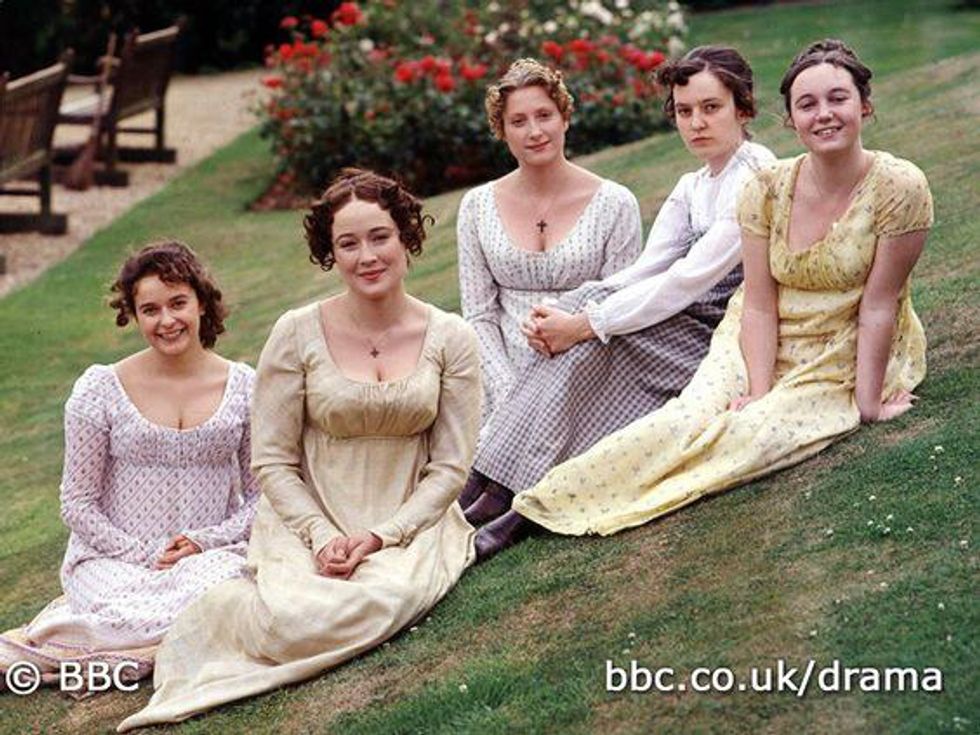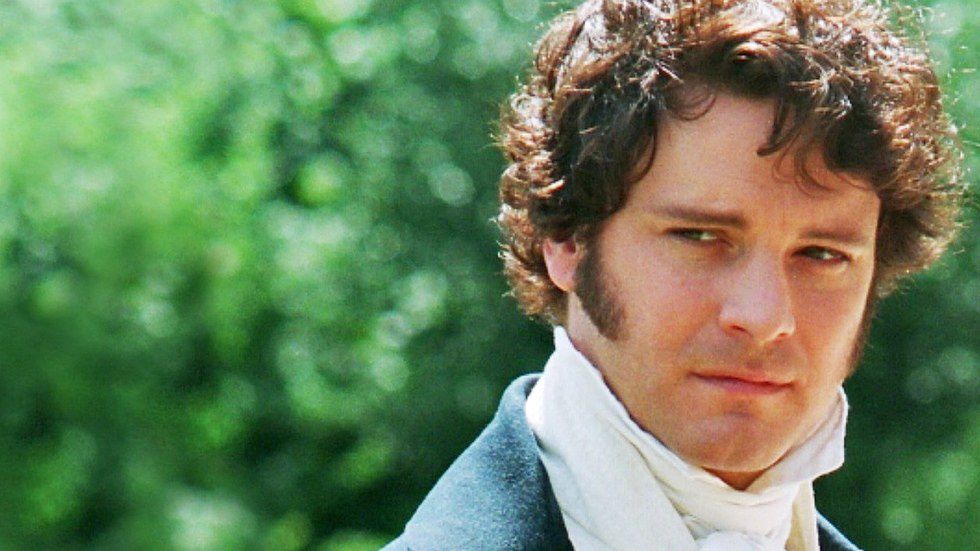I don't know if it's the fact that I'm an English major, or that I've secretly always wanted to live in Victorian England, or if it's Elizabeth Bennet's subtle wit that really speaks to me, but Jane Austen's Pride and Prejudice has always been one of my favorite novels. Needless to say, I have some strong opinions on both adaptations. There were wonderful aspects in both the BBC miniseries of 1995 and the film of 2005, but if you're looking for an accurate representation of the setting and characters, which, to me, is one of the necessities when a book is made into film, go with the miniseries. While I could probably write my own novel on these two renditions, here are just four reasons why the BBC version triumphs over the movie.
1. It's a miniseries, not a film.
Some people lose interest in a film that is too long or spends time focusing on character development rather than moving the plot forward. However, I am definitely the type of person that would rather watch the 6-hour director's cut than a standard 2-hour film where numerous scenes essential to the plot and its characters must be cut. A miniseries solves this problem. All the key scenes from the book are there within its six 45-minute episodes and there is time to spend on the relationships between all the characters, not just the main love interests. This is so important to the watcher's understanding of the characters' actions and motivations.
2. Colin Firth.
Okay, so my number one reason why this version is so much better is Colin Firth. He precisely embodies the arrogant, aloof yet charming Mr. Darcy of Austen's novel. Matthew MacFadyen does a fine job, but he just doesn't compare to Colin Firth's brilliance. Come on, who wouldn't swoon at that smolder??
3. A+ Casting.
While I love many of the casting choices in the film, particularly Tom Hollander's Mr. Collins and Judi Dench's Lady Catherine de Bourg, the casting of the miniseries is so spot on that it completely won me over. Firstly, I found that Jennifer Ehle's Elizabeth was exceedingly true to the novel character's understated elegance, sharp wit and exuberance for life that doesn't revolve around meeting a man and getting married. Crispin Bonham-Carter's Mr. Bingley was entirely lovable and so true to Jane Bennet's kind and cheery love interest. Both Mr. and Mrs. Bennet, played by Alison Steadman and Benjamin Whitrow, do a excellent job, as well. Mrs. Bennet's superficial outlook on life becomes apparent the moment her shrill, whiny voice cuts through the scene. And Mr. Bennet's wise, calm demeanor contrasts greatly from the majority of his family and makes him very likable.
4. The proposal scene.
I could go on for a while or perhaps write another article titled "Scenes I Don't Like in the 2005 Film," but it's the proposal scene that I find most unforgivable. In Austen's novel, this scene is set up so that Elizabeth finds out that Darcy interfered with her sister's marriage right before he barges in and professes his feelings for her, which contributes hugely to why Elizabeth responds so harshly. Here's the BBC version of the scene:
And here's the film's version:
So this scene is meant to show Darcy's arrogance and lack of consideration for how Elizabeth might react to his proposal, to highlight how wrong it would be if they did get married at this point in the story. Everything in the second version, from the clipped adaptation of Austen's original words to the overly dramatic setting (yes, the pouring rain is very cinematically pleasing, but is it really necessary?) is modernized. The scene has been morphed into a more run-of-the-mill, desperately-romantic moment than the charged argument that is meant to ensue. Darcy insults Elizabeth's family and status, and causes her sister grief, so can someone please tell me why in the world they almost kiss in the film adaptation? Perhaps it adds intrigue, but it simply doesn't make sense in the context and isn't true to the brilliant scene Austen wrote.
Okay, rant over. Honestly though, if you are a Pride and Prejudice fan and haven't seen the BBC version of this timeless story, do yourself a favor and watch Austen's words come to life with its flawless cast, super accurate representation of the era and Colin Firth's face. Seriously, you will not be disappointed.











































